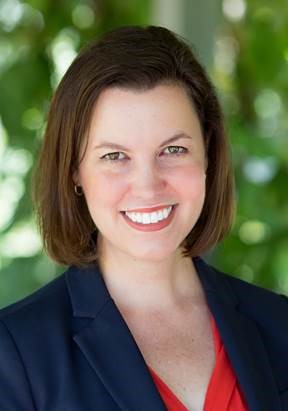
Megan Morris, PhD, MPH
Associate Professor, Division of General Internal Medicine
ACCORDS Investigator and Qualitative and Mixed Methods Core Lead
Founder, Director of Learning Collaborative to Address Disability Equity in Healthcare (LEADERs)
Dr. Megan Morris is a qualitative and mixed methods researcher with content expertise in disparities in care experienced by persons with disabilities. She focuses on provider and healthcare organization-level factors that negatively impact the quality of care delivered to patients with disabilities. Using qualitative and mixed methods, she has led multiple studies in the area, including studies examining providers’ implicit disability bias and a PCORI funded trial comparing methods to improve the quality of communication between patients with disabilities and their healthcare team. Finally, she is the founder and director of a national consortium of healthcare organizations working towards advancing equitable healthcare for patients with disabilities.
1. Why is your area of science important?
“Nothing about us, without us” was a rallying cry of the disability rights movement in the 1990s. Since then, we have learned that persons living with disabilities, which represents 20% of the US population, experience significant disparities in the receipt of high-quality, accessible healthcare services. To understand the causes of the disparities as well as potential solutions, it is essential that we listen to and engage persons with disabilities and other key stakeholders. Qualitative and mixed methods research designs are therefore critical.
2. What was important in your Health Services Research training?
I completed a post-doctoral fellowship in Health Services and Outcomes Research. What was most valuable about the experience was the opportunity to engage with colleagues from diverse clinical areas. I learned how to effectively communicate about my research to other researchers and clinicians who knew nothing about my topic. Additionally, I learned to adapt models and frameworks from other fields to research questions I was asking.
3. What are the major take home messages your current research provides?
As a research participant with a disability reported saying to his healthcare team: “Your normal might not work with me.” Patients with disabilities want to feel valued and respected, but sometimes need adaptations or accommodations. The most important adaptation they need is for the healthcare team to be flexible and willing to be creative.
4. What are your goals or areas for future research?
The goals of my research are for: 1) patients with disabilities to feel respected and valued when interacting with the healthcare setting, 2) the healthcare team to be competent and prepared to provide high-quality, patient-centered care to any patient with a disability, and 3) patients with disabilities and their healthcare team to be able to effectively collaborate to achieve optimal health for the patient.
5. What advice do you have for researchers who want to work in this area?
First, persistence is key. When you are pursuing a research area that you are passionate about, yet is under recognized, the rejections will be plentiful. Therefore, you need to be relentless, creative, and hope that you are just an early adopter and that others will soon follow! Second, remain connected to the population you aim to help. Engaging with your stakeholders, which could be clinicians, policy makers, patients, etc., and understanding the issues that are important to them, will help sustain you through the tediousness of research and the rejections. Additionally, they will always supply you with an endless number of important and relevant research questions.